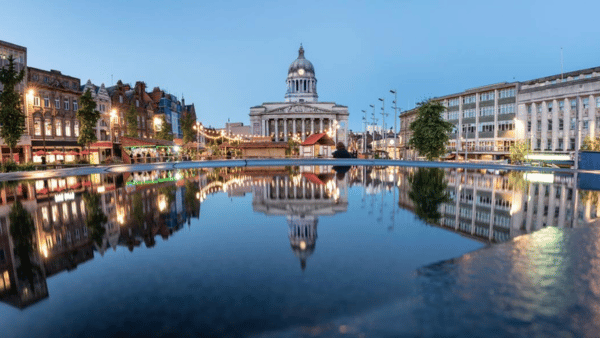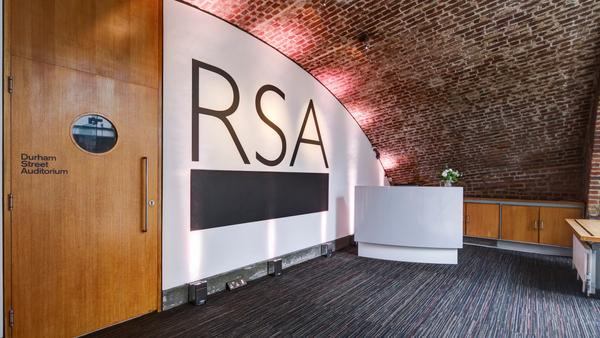- Study of the UK’s most polluting industries warns that levelling-up funding alone won’t be enough to support areas losing out from move to green jobs.
- Data reveals that Aberdeen, Port Talbot and Stratford-upon-Avon could be hit if jobs in steel manufacturing and car production decline and fossil fuels face the chop.
- Calls for a ‘Just Transition Fund’ to support areas impacted by decline in polluting jobs – in order to avoid 1980s-level decline in UK communities.
Up to half of the places that will be hit hardest by job losses from decarbonisation are not in the UK government’s top priority areas for levelling-up funding, a new report warns.
Decarbonisation Dynamics from the Royal Society for Arts, Manufactures and Commerce (RSA) explores which areas will be hardest hit by job losses from the essential move to decarbonisation, and where these areas sit in the government’s levelling-up priority areas for funding.
The study finds that while some areas will be able to switch from industries such as fossil fuel production to greener ones, many areas risk being left behind. It calls for the government’s levelling-up policy to better support these areas.
For instance, just ten of the 20 most fossil fuel-reliant areas in the UK have not been labelled as a priority for levelling-up, the report finds, suggesting that current levelling-up policy alone will not match the scale of the problem.
The report looks at three highly-polluting sectors in particular which have been highlighted as key industries that will need to transform if we are to hit net-zero:
- Fossil fuels and Energy production: Most concentrated in Aberdeen City (11 percent of workers), Stockport (6 percent), Blaby (6 percent) and Warwick (4 percent). Some of the areas with the highest concentration of jobs in these industries already have high renewable energy capacity but in other areas workers may lack sufficient opportunities to transition into green jobs. But only 10 of the top 20 areas for employment in these industries have been labelled as ‘priority 1’ for levelling-up.
- Heavy industry, such as steel production: Port Talbot (9 percent), North Lincolnshire (6 percent), Clackmannshire (5 percent), Amber Valley and Stoke-on-Trent (4 percent) have the highest concentration. These jobs could be impacted by whether new technologies such as carbon capture, utilisation and storage and low carbon hydrogen fuels – reach maturity in time. Yet only 10 of the top 20 areas for employment in these industries have been labelled as ‘priority 1’ for levelling-up.
- Vehicle manufacturing. Stratford-upon-Avon (10 percent of workers), Knowlsey (9 percent), Sunderland (8 percent), and Solihull (8 percent) have the highest concentration. Just eight areas in the top 20 are in the government’s priority one category for levelling-up.
The report further warns that we should learn the lessons from the 1980s and focus on ensuring communities are supporting during the transition - including:
- A ‘just transition fund’, to support job creation in new industries of the future. This would be modelled on the EU’s plan to support areas with declining (and highly polluting industry). The report's authors estimate that with the same approach this would cost the UK £1.36bn, which is similar to the amount of the £1.7bn initially allocated by the government as part of its levelling-up fund.
- Job Security Centres. The Government should work with local authorities in these areas to pilot new transition services through the JobCentre Plus. These more end-to-end services should include data-driven insights about local labour markets, as well as career coaching and access to training opportunities or business start-up support to help workers find jobs in future industries.These pilots should also include experiments with new approaches to welfare such as transitionary basic income.
Fabian Wallace-Stephens, senior researcher at the RSA and report author, said:
“Decarbonisation is essential and can lead to a better future for workers and communities — but only if the state takes an active role in shaping local labour markets through investment, skills training and better welfare support.
“But at present, many of the areas where the impacts will be most acutely felt are not in the priority categories for levelling-up funding. We need to make sure that decarbonisation policy and levelling-up policy work hand-in-hand to secure a better future for the most affected communities.”
Ends
Contact:
For more information or a copy of the report, contact Ash Singleton, ash.singleton@rsa.org.uk, 07799 737 970
Notes:
The RSA (royal society for arts, manufactures and commerce) is an independent charity, committed to a future that works for everyone. A future where we can all participate in its creation.
The RSA has been at the forefront of significant social impact for over 260 years. Our proven change process, rigorous research, innovative ideas platform and diverse global community of over 30,000 problem solvers, deliver solutions for lasting change.
Legally, the Royal Society for the Encouragement of Arts, Manufactures and Commerce (‘RSA’) is a Royal Charter Company and registered charity in England and Wales (charity number 212424) and in Scotland (charity number SC037784).
Related articles
-
Gifts that give back: Introducing the new RSA Gift Shop
Fellowship news
Fionna Monk
It’s official. The RSA Gift Shop has just launched! Explore a thoughtfully curated range of RSA-branded products honouring our long-standing legacy of social innovation and impact. From stylish organic tote bags and classic crewneck sweatshirts to beautiful greeting cards featuring exclusive imagery from our archive. Find something memorable for yourself or someone special.
-
Groundbreaking commission to supercharge East Midlands launched
Press release
The RSA and the East Midlands Combined County Authority have launched the Inclusive Growth Commission, which will identify and action radical plans to unleash potential and supercharge prosperity in communities across the East Midlands.
-
Meet the newest members of the RSA Fellowship Council
Fellowship news
Fionna Monk
We are delighted to announce the appointment of four new Fellowship Councillors! The Fellowship Council is a vital bridge between our diverse global collective of Fellows and RSA staff. Fellowship Councillors ensure that all Fellows are heard and actively support key RSA initiatives. Each Councillor brings their own expertise and experience to the table, championing our mission and strengthening the RSA community.


